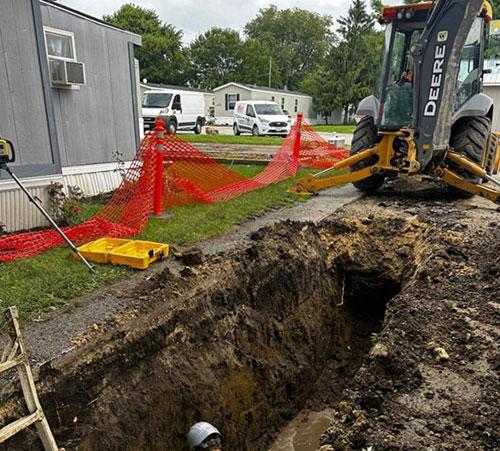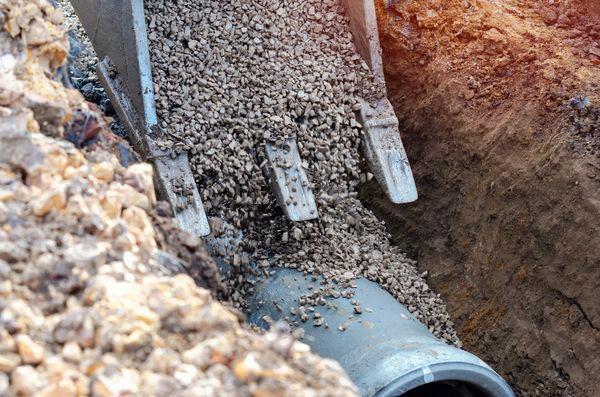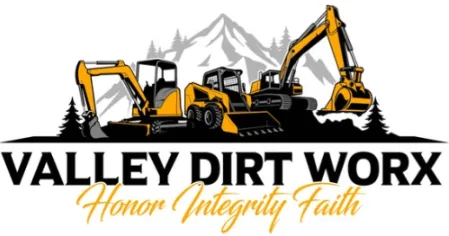Drainage Systems Near Raleigh County, West Virginia
Valley Dirt Worx, LLC is Committed to superior quality and results!

AVOID COSTLY MISTAKES:
Do NOT hire an excavating contractor without first reading our free guide:
The ULTIMATE Excavation & Septic "Success Guide."

Everything You Need to Know About Drainage Systems Near Raleigh County West Virginia
If you own a home, farm, or property in Raleigh County, West Virginia, chances are you’ve seen what happens when water doesn’t drain properly. Pools of standing water. Muddy driveways. Basements that smell like a pond. None of it’s good. That’s where drainage systems come in—and more specifically, drainage systems near Raleigh County, West Virginia that are designed for your terrain, your climate, and your kind of soil. This guide covers exactly what you need to know: why drainage systems matter, how they help, why working with a local team makes a difference, and what the hiring process looks like from start to finish.
How Can We Help?


Why Drainage Systems Near Raleigh County West Virginia Are So Important
Raleigh County isn’t exactly known for its dry weather. Between the rain, melting snow, and hilly terrain, water runoff can be a big problem—especially for homes built on sloped lots or clay-heavy soil that doesn't drain well. That’s where a professionally installed drainage system can make all the difference.
Here’s why drainage systems matter:
• Prevents water damage: Without proper drainage, water seeps into foundations, basements, crawl spaces, and septic systems. Over time, this leads to structural problems and expensive repairs.
• Protects landscaping: Soggy lawns, drowned gardens, and mulch that constantly washes away are signs of poor drainage. A custom solution keeps your outdoor space healthy and usable.
• Stops erosion: On sloped properties, runoff can wash away topsoil, leaving ruts and damaging driveways or retaining walls. Drainage systems control flow to prevent this.
• Reduces mosquito breeding: Standing water is a mosquito magnet. Getting water to move away from your home helps cut down on pests.
• Improves home value: Homes with proper drainage are easier to sell and less likely to have inspection issues. It’s an investment that protects your property long-term.
What Are the Benefits of Hiring Experts in Drainage Systems Near Raleigh County, West Virginia?
It might be tempting to DIY a French drain or dig a trench yourself. But hiring a team that specializes in drainage systems near Raleigh County, West Virginia gives you some key advantages.
1. Local Knowledge Matters
Professionals who work in Raleigh County know how to deal with red clay soil, heavy rains, and hillside erosion. They understand local building codes and the quirks of the land, which leads to better long-term results.
2. Custom Solutions
Every property is different. A good drainage contractor doesn’t just offer a cookie-cutter fix—they take the time to assess your layout, slope, water patterns, and structure to design a system that works specifically for your situation.
3. The Right Equipment
From trenchers and excavators to laser levels and sump pumps, a well-equipped crew brings the right tools to do the job efficiently and correctly.
4. Long-Term Durability
Professionally installed drainage systems last longer and require less maintenance because they’re built with the right materials and designed for your climate. They’re also less likely to fail after one big storm.
5. Peace of Mind
The biggest benefit? Knowing it’s done right the first time. You won’t have to worry every time it rains. That peace of mind is worth its weight in gravel.
See Our Excavation & Septic Services

✔️Commercial Excavation
✔️Residential Excavation
✔️Swimming Pool Excavation
✔️Demolition
✔️Large Pond Construction
✔️Small Pond Construction
✔️Dozer Work
✔️Septic Inspections
✔️Septic Installs Traditional Systems
✔️Drain Field Replacement
Quality Services Launched FAST!

✔️Forestry Mulching
✔️Grading
✔️Lot Clearing
✔️French Drains
✔️Retaining Walls
✔️Drainage Systems
✔️Concrete Flatwork - Driveways, Sidewalk, Foundations
✔️Foundation Repairs
✔️Full Site Preparation
✔️Trenching
✔️Utilities Trenching
What Are You Waiting For?
How the Process Works: Hiring a Drainage Systems Pro Near Raleigh County West Virginia
So, you’re ready to fix your drainage issues. What’s next? The process of hiring someone for drainage systems near Raleigh County, West Virginia is pretty straightforward, but it helps to know what to expect.
Step 1: Site Evaluation
Everything starts with a walk-through. A professional will visit your property, look at water flow patterns, problem areas, soil type, and elevation. They’ll probably ask about past flooding, pooling, or damage.
Step 2: System Recommendation
Based on the evaluation, they’ll recommend a solution. This might include:
○ French drains
○ Surface drains
○ Swales or berms
○ Dry wells
○ Catch basins
○ Sump pumps
○ Downspout extensions
They’ll explain what each one does and how it fits into your property layout.
Step 3: Estimate and Timeline
You’ll get a written estimate for the work, including materials, labor, and timeline. Ask questions here—it’s your chance to understand exactly what’s being installed and why.
Step 4: Permits (If Needed)
In some cases, you might need a permit—especially if you’re rerouting water off your property or near a public easement. A local contractor will know how to handle this step.
Step 5: Installation
Depending on the size of the job, installation could take a day or a few days. The crew will dig trenches, place pipes or drainage material, and restore your yard when finished. Some systems also include grates, covers, or clean-out points for maintenance.
Step 6: Testing and Clean-Up
Once everything’s in place, your installer will test the system to make sure water flows correctly. Then they’ll clean up the worksite and go over maintenance tips.
Common Types of Drainage Systems Used in Raleigh County
There’s no one-size-fits-all when it comes to drainage. Here are some of the most common options used for drainage systems near Raleigh County, West Virginia:
• French Drains: These are gravel-filled trenches with perforated pipe that redirect groundwater away from your home.
• Curtain Drains: Similar to French drains, but placed shallow to catch surface runoff before it becomes a problem.
• Swales: Shallow, sloped ditches lined with grass or stone that channel water across a yard.
• Dry Wells: Underground containers that collect and slowly disperse water back into the soil.
• Catch Basins: Grated inlets that collect surface water and direct it into underground piping.
• Sump Pump Systems: Pumps that remove water from a basement or crawl space and discharge it safely away from the foundation.
All rights reserved | Client Support Area

